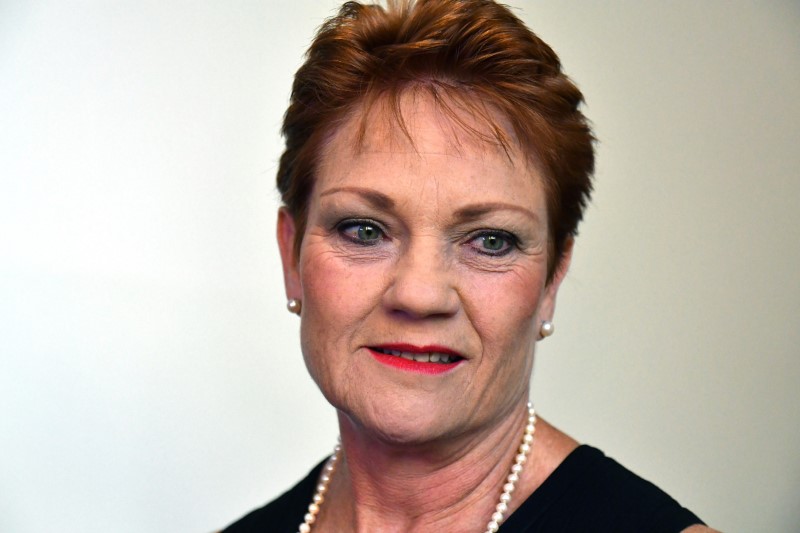(Repeats story published on Sunday, no change to text)
* Centre-left party wins Western Australian election
* Port and energy grid privatisations on ice
* BHP Billiton and Rio Tinto avoid new tax
By Jonathan Barrett and Harry Pearl
SYDNEY, March 12 (Reuters) - The rapid resurgence of nationalist politics in Australia was abruptly halted on Saturday after Pauline Hanson's One Nation party drew less than 5 percent of the vote and was set to win just one seat in a state poll.
The election in mineral-rich Western Australia was won convincingly by the centre-left Labor party, leaving Hanson's right wing, anti-immigration party trailing far behind.
The vote was the first major test of popularity for Hanson since winning a place in the federal parliament last year, when she rode a wave of anti-establishment sentiment similar to that seen in the United States and Europe. two-thirds of the votes counted the Australian Broadcasting Corporation forecast that One Nation would win one seat, confounding expectations that it could gain enough to influence legislation in the new state parliament.
"This has certainly halted the sense of momentum building around One Nation that has been there since July last year," said Associate Professor Haydon Manning, a political scientist at Flinders University.
Before the vote, the governing Liberal party ditched its traditional allies to strike a deal with Hanson's party to swap preferences - a measure in Australia's voting system designed to help both parties increase their presence in the new parliament.
The deal appears to have back-fired, with Hanson losing some of her anti-establishment fervour and the state Liberals putting off their centre-right base.
Hanson, who is wary of foreign investment and wants to suspend Muslim immigration, said late on Saturday the deal was a mistake.
"Doing the deal with the Libs has done damage to us, in all honesty," she told Channel 7 as the election results became clear.
PRIVATISATIONS ON ICE
The election result has ended plans for several asset sales that Labor campaigned against, including a proposal to sell a majority stake in the A$15 billion ($11.3 billion) Western Power electricity grid through a public float along with privatisation of the $1.5 billion Fremantle Port.
Labor has won the vote decisively by an anticipated 40 seats to the Liberals 19, and will govern without needing a coalition partner.
The result will also see mining giants Rio Tinto RIO.L RIO.AX and BHP Billiton BLT.L BHP.AX escape a state tax on their iron ore businesses proposed by the rural-centric National Party, which fell short of obtaining the influence to force such a measure.
Outgoing Liberal Premier Colin Barnett was the country's longest serving political leader, having seen four changes of Prime Minister during his tenure.
His federal counterpart, Liberal Prime Minister Malcolm Turnbull, rejected suggestions his own performance had contributed to the election defeat.
"There is no evidence of federal factors playing a role there," said Turnbull, who has fallen behind the federal Labor opposition in opinion polls.
($1 = 1.3303 Australian dollars) (Editing by Alexander Smith and SImon Cameron-Moore)
